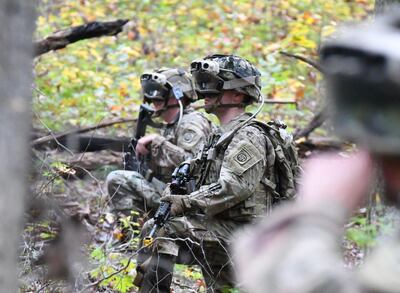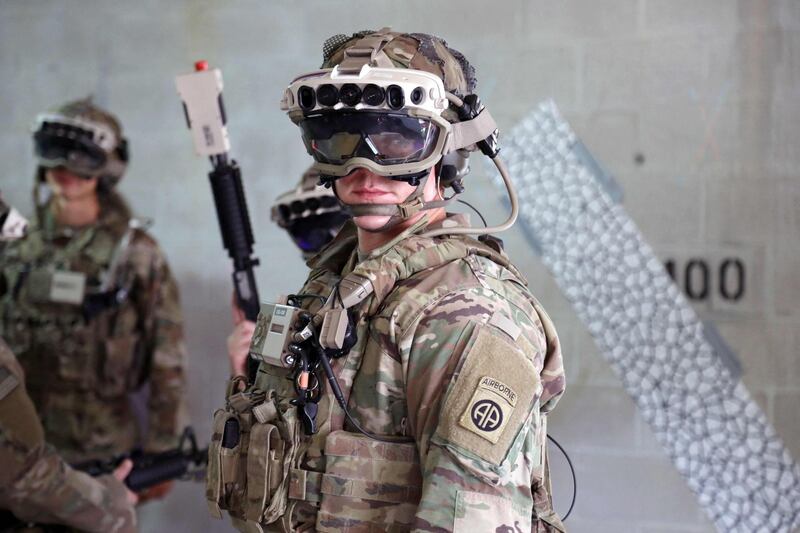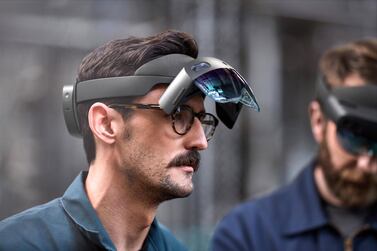Microsoft won a deal to sell the US Army augmented reality headsets based on its HoloLens product and backed by Azure cloud computing services, the company said on Wednesday.
The contract could be worth up to $21.88 billion over 10 years, a Microsoft spokesman told Reuters.
Over the past two years, Microsoft has worked with the US Army on the prototyping phase of what is called the Integrated Visual Augmentation System, or IVAS. The company said the US Army had moved into the production phase of the project.
In a blog post, Microsoft technical fellow Alex Kipman said the headsets are designed to deliver "enhanced situational awareness, enabling information sharing and decision-making in a variety of scenarios".
The headsets will be manufactured in the US, according to the Microsoft spokesman.
This is not the first time Microsoft has worked with military to develop AR capabilities.
In 2019, the British Army began trialling HoloLens 2 headsets with 1,500 military personnel to help frontline medics carry out operations in war zones. The devices are programmed to send instructions to those providing emergency medical treatment on the ground from specialists anywhere in the world.
Using the glasses, those on the ground will be able to share information about the injured, such as vital statistics, to seek help from medical experts.
Microsoft was also in line to win a $10bn JEDI cloud computing contract with the Pentagon, but the contract remains in dispute in a lawsuit filed by Amazon. Pentagon officials told US lawmakers in February that the Defence Department may jettison the contract if the dispute lingers in the courts.

After Microsoft announced a $480 million contract in 2018 to supply prototypes to the US Army, at least 94 workers petitioned the company to cancel the deal and stop developing "any and all weapons technologies", Reuters reported.
On Wednesday, the Microsoft Workers 4 Good group said on Twitter: "We would much rather Microsoft used today to stand up for Transgender people everywhere on Transgender Day of Visibility, instead of building weapons of war."
We would much rather Microsoft used today to stand up for Transgender people everywhere on Transgender Day of Visibility, instead of building weapons of war. https://t.co/kHZycRhpvM
— Microsoft Workers 4 Good (@MsWorkers4) April 1, 2021







